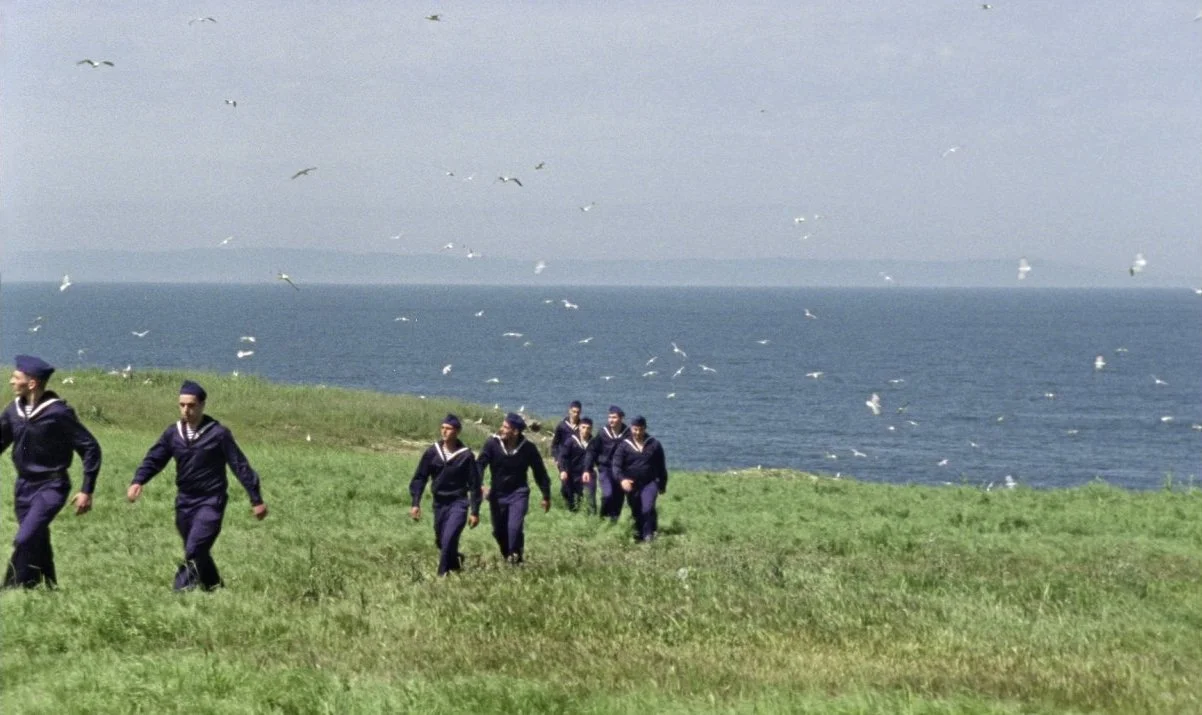FEBRUARY
Directing: B
Acting: B-
Writing: B-
Cinematography: B+
Editing: B-
I suppose February, a Bulgarian film about a man at three different stages of his life, just isn’t for me. For some reason I watched the whole thing anyway, so I can sit down here and tell you why I didn’t like it all that much. And that I didn’t hate it either. It’s just very, very slow—to say February is pastoral and meditative is an understatement. Or more accurately, it is the statement.
Maybe another thing meant to be conveyed by director Kamen Kalev, who also wrote and directed, is a fundamental lack of ambition, on the part of the central character, Petar. February has a concept that is fairly compelling on its own merits: Kalev splits it into three parts, each of them roughly forty minutes long, with a different actor playing Petar in each of them, at age eight, eighteen, and eighty-two. That’s what the synopsis of the film at siff.net says, anyway; his age is never stated during the film.
When we first meet Petar, as a little boy, he’s spending his days with his grandfather, who is a sheep farmer. When we meet Petar as an old man, he is himself a sheep farmer. The only time we truly gain any insight into the psyche of Peter as a character is in the middle section, when he is eighteen, just married, and joined the military. Indeed, the three parts have their own titles: Part I is The Past; Part II is Military Service; and Part III is February.
It is during Military Service that we learn, when a superior officer inquires as to why Petar spends all of his time walking around the island in contemplative silence, that Petar’s father and grandfather were both sheep farmers, and he fully expects and intends to be one himself as well. The superior officer has offered him a higher rank and is aghast at Petar’s disinclination to take him up on it: “You stupid peasant!” To be clear, that little outburst is definitively the most exciting moment in the film.
This film is only available locally in Seattle as a streaming ticket purchase at SIFF.net, and I can’t decide whether it’s better there or if I would have liked it better in a theater. Anyone with low tolerance for movies in which virtually nothing actually happens will be bored to death, but there is also something about the theater experience that makes it easier to lose oneself in a film, even one like this one. As it stands as a streaming option, I found it very easy to get distracted, look stuff up on my phone. Believe me when I say it’s easy to do that and not miss anything.
I kind of wish the whole movie were about 18-year-old Petar, or that his section was longer, and the other two shorter, as something more like a prologue and an epilogue. And not just because when a shirtless 18-year-old Petar did some astonishing handstand pushups I truly snapped to attention. Giving all three moments in his life equal time doesn’t work that well. As both a little boy and an old man, we spend an inordinate amount of time just watching him tending sheep. Or, in one case occasionally speaking to his grandfather, and in the other occasionally speaking to his sister on the phone. One very strange thing is that we don’t even learn he has a sister until Part III; in Part I he makes a single reference to a brother, who is never mentioned again. Unless someone mistranslated the subtitles, which are all I can go on.
In any case, Petar as a young man is by far the most interesting. When Part II begins, it’s his wedding, to a woman we see briefly and, again, we never see again—even though we later learn she bore his child. There’s a telling scene just after the wedding, one of the most sexless sex scenes I have ever seen, these two young people, who really should be quite horny, just going through the motions, fulfilling an obligation. I kept wondering about Petar’s sexuality. Not that I thought he was gay; in fact by all accounts he’s just not interested in sex. When he volunteers to be stationed on the remote Saint Ivan Island, he spends all of his time looking at the countless seagulls (this makes for a lot of this film’s extensively pleasant cinematography, which is the most consistent thing between all three parts) or chasing rabbits.
In Part III, we do see old photos of him with people in his past, people he’s not with now, the story behind which Kamen Kalev denies us. Petar is content, evidently his entire life, to live in quiet solitude, among the pretty rural countrysides of Bulgaria. I suspect the most ideal person for viewing this movie itself is someone with a similar disposition.
Petar doesn’t regard his human companions much, but gets plenty from the company of seagulls.
Overall: B-

